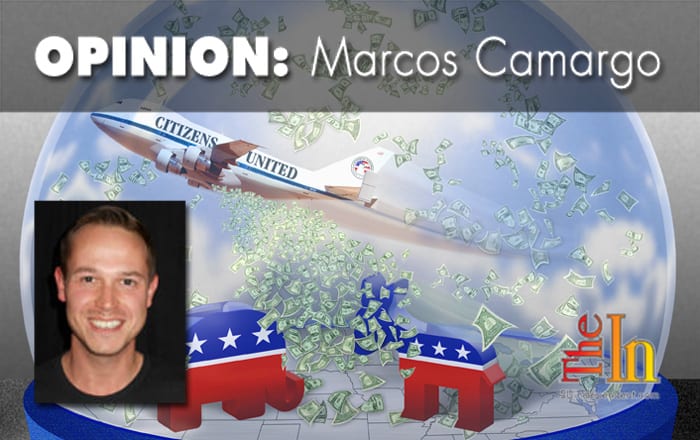 |
| Image: DonkeyHotey |
Written by Marcos Camargo
According to the Center for Public Integrity, an organization that reports on state corruption, Utah ranks 36th, with an overall grade of D. There are 14 categories used by CPI to rank states. Utah failed in four. Among Utah’s failures, political finance laws stand out. In the past year, two former attorneys general, Mark Shurtleff and John Swallow, have been indicted for taking gifts and campaign contributions from several businessmen facing criminal charges. In exchange, the businessman were allegedly promised mitigated charges, a scandal that has been termed a “pay-to-play” operation. Neither Shurtleff nor Swallow has been sentenced, but both their cases illustrate the need for campaign finance reform in Utah.
Conservatives howl at the term “campaign finance reform,” often portraying it as a violation of free speech for both individuals and corporations (because a corporation is a person, remember?). But the recent shenanigans in the Beehive State show that unbridled campaign funding has little to do with speech and instead more often leads to bribery.
Utah’s newly elected attorney general, Sean Reyes, ran on a platform of integrity and reform. Now less than a year after his election, Reyes’ own campaign contributions don’t look as squeaky clean as one would hope.
An article published on June 7 by the Salt Lake Tribune reported that Reyes has received more than $500,000 since taking office. As of yet, there is nothing that shows Reyes has accepted gifts or money in return for promises of favors. Nevertheless, his campaign has received donations from some rather shady sources.
For example, Washakie Renewable Energy paid $31,000 toward the Reyes’ campaign. Washakie is owned by members of the polygamous Kingston family, which even Shurtleff called an “organized-crime family.” Federal regulators fined Washakie $3 million for selling fuel credits for renewable fuels it never produced.
None of this proves that Reyes is on the same tier as Shurtleff and Swallow when it comes to corruption, but it does show that more than just an overhaul of the attorney general’s office is needed to stop improprieties. Utah needs a campaign finance overhaul.
Utah representative Brian King (D) introduced legislature in Utah’s 2014 congressional session that would have enacted big changes. The bill, H.B. 297, sought to amend “campaign and financial reporting requirements, by establishing and enforcing contribution limits.” But the bill never made it out of the House.
Why is there such hesitation to pass a law? In a solidly Republican state, one can hardly imagine that Republicans are scared they might lose control of either the House or the Senate. Utah politicians love to talk about the importance of small business and the state’s business friendly environment. But allowing limitless contributions allows big business to drown out other interest groups. It also welcomes out-of-state donors to wield undue influence in state elections and politics.
I doubt that serious reform can be made in Utah anytime soon given the money involved. That is, unless voters are willing to take back their state and start voting for candidates who value representation over fundraising, regardless of a candidate’s party affiliation.
So I urge all Utahns to take back your democracy and make every vote count. Cast your vote for campaign finance reform.
Marcos Camargo grew up in the rural heartland of Oregon. In 2003 he moved to Utah to find his place in the world and fell in love with the deserts of America’s arid country. An avid student of history and politics, he has a great interest in Western and Native American history and culture. He spends his free time exploring the wilderness of the Southwest.




